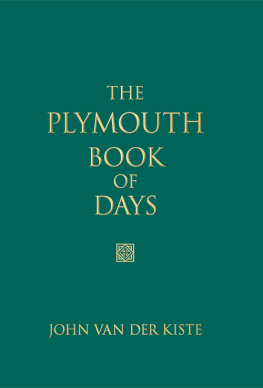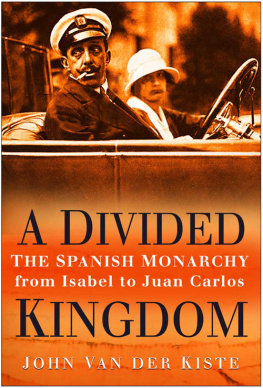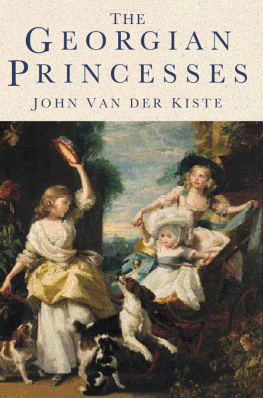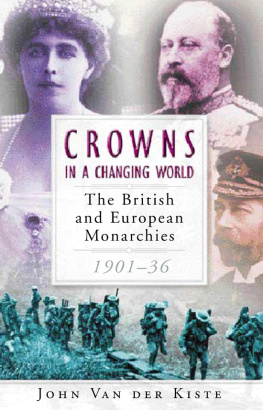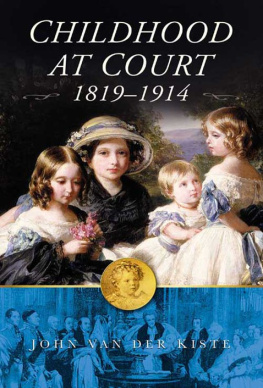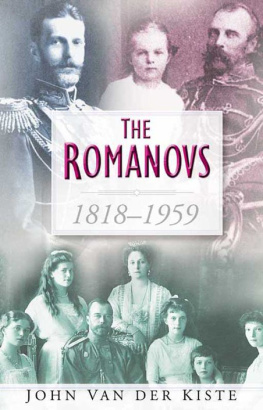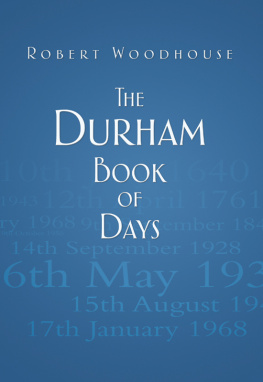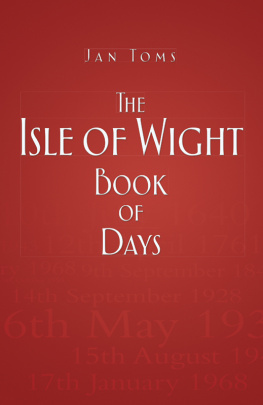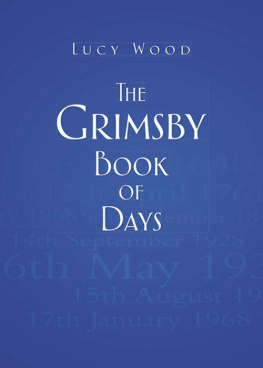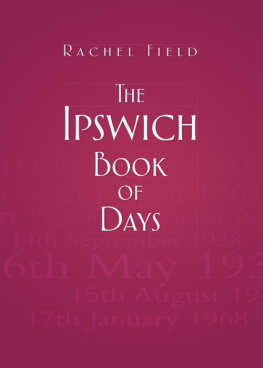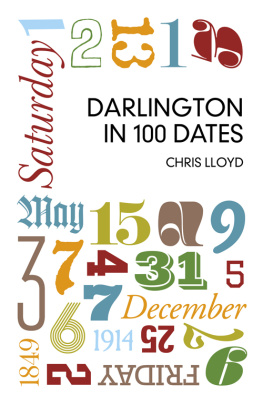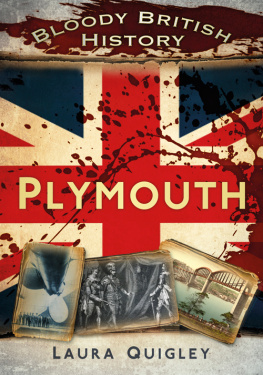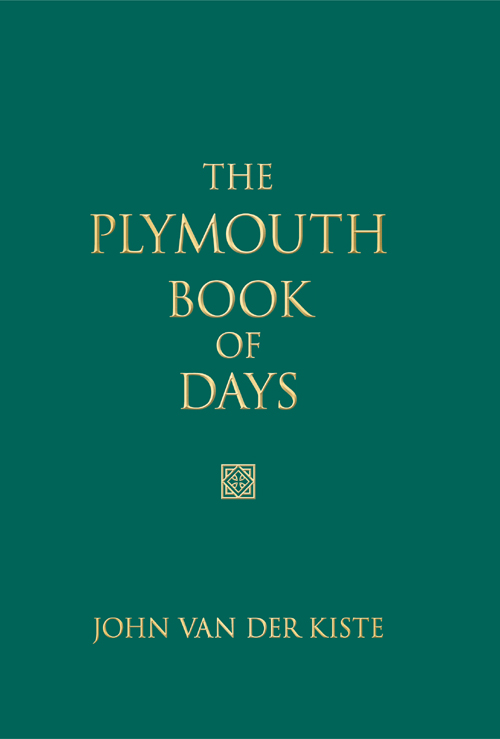THE
PLYMOUTH
BOOK
OF
DAYS
JOHN VAN DER KISTE
I would like to record my particular thanks to my wife Kim for her constant support and reading through of the manuscript; to Brian Moseleys invaluable Plymouth Data website; to the local newspapers and books, all of which have provided so much of the material for this book; and to my editors, Matilda Richards and Jenny Briancourt.
First published in 2011
The History Press
The Mill, Brimscombe Port
Stroud, Gloucestershire, GL5 2QG
www.thehistorypress.co.uk
This ebook edition first published in 2012
All rights reserved
John Van der Kiste, 2011 2012
The right of John Van der Kiste, to be identified as the Author of this work has been asserted in accordance with the Copyrights, Designs and Patents Act 1988.
This ebook is copyright material and must not be copied, reproduced, transferred, distributed, leased, licensed or publicly performed or used in any way except as specifically permitted in writing by the publishers, as allowed under the terms and conditions under which it was purchased or as strictly permitted by applicable copyright law. Any unauthorised distribution or use of this text may be a direct infringement of the authors and publishers rights, and those responsible may be liable in law accordingly.
EPUB ISBN 978 0 7524 8597 3
MOBI ISBN 978 0 7524 8596 6
Original typesetting by The History Press
Contents
January 1st
1824: On 24 December 1823, the Home Secretary, Robert Peel, granted Plymouth Dock (which had overtaken Plymouth in terms of population) its own identity and allowed the residents to change its name something they had been yearning for. Eight days later its new name, Devonport, was officially used for the first time. An official proclamation, carried from point to point in the town, was read repeatedly to cheering crowds. Later, a 124ft column, designed by John Foulston, was erected, including a pedestal intended for a statue of King George IV which was to be financed by 20 shares. But it was never built, as several subscribers failed to pay.

1951: The Royal Parade had its first fatal accident when Mrs Kathleen May, of Laira, was knocked over by a bus; she died on her way to hospital.

2007: Professor Roland Levinsky (63), vice-chancellor of the University of Plymouth since September 2002, was walking his dog in a field at Wembury during a storm, when overhead power cables came down. Paramedics were called but he was pronounced dead at the scene. A new arts building at the university, opened in September 2007, was named The Roland Levinsky Room in his honour.
January 2nd
1958: A woman shopping in the city centre told her husband that she had come out without her key. He told her what a good job it was that he never did such a thing. As they approached their house in Woodford, he fumbled in his pockets and realised that he had done likewise. He had to force the back door, and, only after getting inside, did he discover that he had left his key in the lock of the front door the whole time.

1964: The pianist in an orchestra playing at a venue in the city complained to the management that he was cold, and said that he would like an electric fire. His request was refused with the simple words, Nonsense. Tell him to play faster.

1965: Senior Inspector Forward, of the RSPCA, revealed that a fully grown Muscovy duck had been handed in before Christmas and that he, his wife and 10-year-old daughter had looked after it at their home in Peverell. It was occasionally allowed to exercise in the back garden, but they kept it penned up most of the time. The family had also acquired a large white rabbit and a ferret from people who had found them straying over the festive season.
January 3rd
1725: Plymouths first locally produced newspaper, The Plymouth Weekly Journal, or General Post, was published for the first time. It was printed, and perhaps edited as well, by Mr M.E. Kent, Southside Street, with a cover price of 1d per issue. Despite its title, it was not really a local newspaper, as it did not cover events in the area but relied on reprinting material taken from London newspapers. The earliest edition still known to exist, No. 36, dated 5 September 1718, is in the British Library. A copy dated 12 March 1725 is held by Plymouth Proprietary Library, but there are no records as to when publication ceased.

1860: The first issue of the Western Morning News, the citys longest-lasting newspaper, founded by William Saunders and Edward Spender (the first editor), was published. Politically it claimed to be independent, although it was considered more sympathetic to the Liberal cause in its early days. The offices were originally at New George Street, then moved from the city centre to purpose-built premises at Derriford in 1992. From February 1997 onwards the paper was published in tabloid format. The Derriford offices closed in 2010 and from April that year the paper was printed in Didcot, Oxfordshire.
January 4th
1957: Occupants of buildings in Armada Way were annoyed on this particular morning when they looked out of the windows to see ladies distributing bread on the grassy areas in front of the shops and offices encouraging pigeons, and other birds that came in large numbers, to feed. They complained that the latter were waiting on roofs and faades, leaving a terrible mess. When one irate manager spoke to a woman whom he caught in the act, and suggested that it would be preferable if she scattered the food further away from the buildings, she retorted that in her view the Corporation were neglecting their duties by not employing an official pigeon feeder.

1982: A collection of about 1,000 library books, which had been withdrawn from stock, were destroyed in a fire at the Stoke branch library, Albert Road. The blaze was believed to have been started deliberately by children lighting a bonfire. The books were being kept in storage in an air-raid shelter at the back of the library, until a rise in the pulping price made it more viable to dispose of them. Appealing for witnesses, the police particularly asked for help in tracing three youths seen running away from the scene.
January 5th
1945: A wedding reception was held at a caf in the city centre. Despite wartime restrictions and rationing, no effort had been spared by the brides family in making a magnificent two-tiered cake, coated in icing and marzipan. It had been taken to the caf the day before, and, after the guests arrived from the church, a waitress brought it out and placed it in front of them. The bride duly cut it, handed slices round, and everyone pronounced it quite delicious. After the guests had gone, more taxis arrived at the door and a second wedding party came in. Casting an eye over the neatly laid table, the bride noticed something missing. Wheres our cake? she asked.

